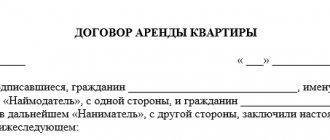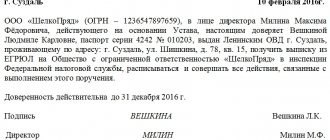An exchange agreement is an agreement under which the parties exchange property that belongs to them by right of ownership.
- Form and sample
- Free download
- Online viewing
- Expert tested
FILES
The subjects of an exchange agreement can be legal entities and individuals, as well as the state and municipalities. In other words, the parties to this agreement may be any legally capable persons.
An exchange agreement can be concluded either orally or in writing. An important nuance is that an oral conclusion is possible only if the subject of the contract in its value does not exceed the minimum wage by ten times. Contracts, the cost of the subject of which exceeds ten times the minimum wage, are drawn up in writing.
Below, using the example of a car exchange agreement, we will look at how such a document is drawn up and what nuances you should pay attention to when drawing it up.
What is an apartment exchange agreement?
An exchange agreement is an agreement under which each party to the transaction undertakes to transfer an immovable object to the other party in exchange for another immovable object (Article 567 of the Civil Code).
The parties to the exchange agreement are the seller and the buyer, who are simultaneously participants in the contractual relationship. Each of them alienates and transfers ownership of one property belonging to him and acquires ownership of other property.
Often this type of agreement is resorted to by citizens who are ready to exchange their apartments under one agreement. Moreover, this may be unequal housing. For example, an exchange takes place of a three-room apartment for a two-room apartment in the same area. Their area is different, and so is their cost. Then the parties agree on an additional payment and enter into an appropriate exchange agreement. All agreements are reflected in its clauses (Article 568 of the Civil Code).
Responsibility of the parties
Also an important factor is the preparation of a section on the responsibility of Counterparties. This is primarily due to risk reduction. Below we present the main provisions that may be written in the text of the document:
The parties bear financial liability in the event of non-fulfillment or improper fulfillment of obligations under this agreement. Counterparties are responsible for deficiencies in the alienated objects if they are identified after signing the agreement. If these shortcomings were discussed before signing the agreement, the parties do not bear responsibility.
Dispute resolution procedure This section often contains the following language:
In case of any disputes, the parties resolve them through negotiations. If during the negotiations the parties do not reach a compromise, disputes are resolved in court.
Legislative regulation of the barter agreement (Civil Code of the Russian Federation)
The legal basis of contractual relations in the case of apartment exchange is set out in the Civil Code. In particular, the following norms of the Civil Code of the Russian Federation should be taken into account:
- clause 1 art. 567 – both parties undertake under a barter agreement to transfer one product in exchange for another;
- clause 2 art. 567 – each party is the buyer and seller of the goods;
- Ch. 30 – the rules apply in the same way as a purchase and sale transaction;
- pp. 1 clause 1 art. 161 – the barter agreement is concluded in simple written form.
What to agree on when exchanging goods
For barter to take place, you need to sign an exchange agreement, draw up specifications and transfer the goods using invoices. Let's fill out all the documents together.
Template for an agreement for the exchange of goods between individual entrepreneurs
You need to check the following in the contract.
Subject of the agreement
The subject is what the parties agreed on.
The subject is written in the first paragraph of the contract. Under a barter agreement, entrepreneurs exchange goods for good. In the text it will sound like this:
In accordance with this agreement, each party undertakes to transfer ownership of one product to the other party in exchange for another.
Each entrepreneur is considered a seller of his goods and a buyer of the counter. In practice, this means that if there is a defect in the product, the rules for purchase and sale will be activated. The supplier of a defective product will be obliged to replace it with a normal one or compensate for repairs.
Description of goods
It should be clear from the barter agreement what goods are being exchanged.
It is more convenient to describe the product in detail in a separate document - specifications. We have two products, so the specifications must be filled out for each. Both entrepreneurs sign for each specification.
For a sample, we filled out a specification for coffee beans. The jam specification will be the same.
Sample of filling out the specification
If it is not clear from the contract what goods are being exchanged, the barter is considered inconsistent. Either party can give back at any time without fines or penalties. But here it may turn out that one product has already been given away. It must be returned. Or pay in money - if the product has already been processed, for example, jam was used for pies.
Are the goods equivalent or not?
By default, barter goods are of equal value. Even if their cost does not match figure for figure.
According to the specification, coffee beans from our example cost 50,000 rubles. Let's imagine that a batch of jam cost 48,500 rubles. Different prices do not mean that you have to pay extra for a more expensive product. In our case, jam and grains are equivalent.
For insurance we write the following phrase:
Goods to be exchanged are assumed to be of equal value; goods are exchanged without additional payment.
❗ In order for goods to be considered unequal, this must be stated in plain text in the contract. Plus indicate how much and when the party pays extra. For example, we write in the specifications that grains cost 50,000 rubles, and jam costs 30,000 rubles. And the recipient of the grains is obliged to pay an additional 20,000 rubles.
In the contract, this condition will look like this:
Party-2 undertakes to transfer to Party-1 the difference in the cost of the exchanged goods in the amount of 20,000 rubles within two days from the date of signing this agreement.
If the recipient of an expensive product delays making an additional payment, interest will accrue on the debt at the key rate, starting from the next day after delivery.
Who pays for shipping and packaging
By default, each party bears all costs of transfer of its goods.
For example, Ivanov is obliged to pay for the transportation of goods to Petrov’s warehouse himself. And Petrov - transportation and packaging of cans in special containers for glass.
But if necessary, all costs can be transferred to one of the parties. For example, Ivanov brings grain and picks up jam in his car.
Delivery time and place of delivery
Goods can be exchanged on the same day or at different times. For example, Ivanov brings grain now, and Petrov brings his goods only in a month. So it is possible. The place of delivery is also agreed upon.
Example:
Party-1 is obliged to deliver the goods by July 30, 2021 to Party-2 at the warehouse address: Yekaterinburg, Lenin Street, building 5.
The same point will be for delivery of the second product.
A delivery note is issued for the transfer of each product.
Invoice template TORG-12 + instructions for filling
The timing of delivery of goods is very important.
If the goods are not delivered at the same time, a so-called counter-fulfillment occurs. And this is where this rule comes into play. If the first item is late, the delivery of the second item can be delayed or the barter can be canceled altogether. With one-time barter, it is impossible to refuse the goods on the move.









